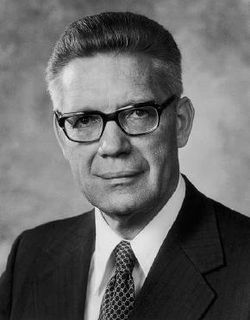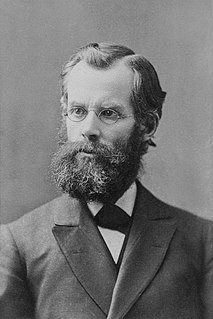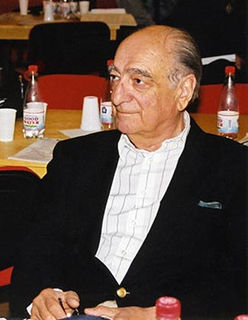A Quote by Bruce R. McConkie
I do not know all of the providences of the Lord, but I do know that he permits false doctrine to be taught in and out of the Church and that such teaching is part of the sifting process of mortality
Related Quotes
You have big names in Scientology running around pretending to be the nicest people, and they take the care to talk to you and look at you in the eye, but that's all part of the process. That's all part of being in the church - to be a good example, to ingratiate yourself to Hollywood so that they'll say, "Hey, I don't know why you're attacking Scientology." It's all purposeful. I did it, I know!
Where possible Paul avoids quoting the teaching of Jesus, in fact even mentioning it. If we had to rely on Paul, we should not know that Jesus taught in parables, had delivered the sermon on the mount, and had taught His disciples the 'Our Father.' Even where they are specially relevant, Paul passes over the words of the Lord.
As Elder George F. Richards, President of the Council of the Twelve, said in a conference address in April 1947, 'when we say anything bad about the leaders of the Church, whether true or false, we tend to impair their influence and their usefulness and are thus working against the Lord and his cause.' ... The Holy Ghost will not guide or confirm criticism of the Lord's anointed, or of Church leaders, local or general. This reality should be part of the spiritual evaluation that LDS readers and viewers apply to those things written about our history and those who made it.
David Langford, illustrates the difference between teaching and
learning in a little story. He says, 'You know, last Wednesday I
taught my dog to whistle. I really did. I taught him to whistle. It
was hard work. I really went at it very hard. But I taught him to
whistle. Of course, he didn't learn, but I taught.'
'Lord you know that I love you...Lord, you know that I love you' (Jn 21:15-17). The Eucharist is, in a certain way, the culminating point of this answer. I wish to repeat it together with the whole Church to Him, who manifested His love by means of the Sacrament of His Body and Blood, remaining with us 'to the close of the age'
Under Pope Francis, we have seen a change at the Vatican that is reflective of the church I know and love. He approaches controversial doctrine or past wrongdoing with humility, understanding, and faith in the goodness of mankind. He has served as a voice for the voiceless and has been working to re-establish the church as a home for the homeless.


































